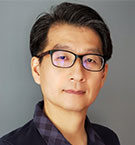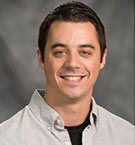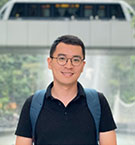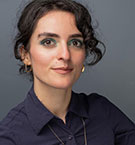Choi Lab
Contact Information
Choi Lab
MGH Department of Neurology
Genetics and Aging Research Unit
Bldg. 114, 16th Street
Charlestown,
MA
02129
Email: choi.sehoon@mgh.harvard.edu
Se Hoon Choi, PhD
Assistant Professor of Neurology
Harvard Medical School
Massachusetts General Hospital
Explore This Lab
Research Overview
In the pursuit to understand Alzheimer’s disease (AD), our overall research objectives are to explore the roles of adult-generated neurons (adult hippocampal neurogenesis) in AD, to uncover the molecular mechanisms linking the exercise hormone irisin to neuroprotection in AD, and to develop three-dimensional (3D) human neural cell culture models and neuro-vascular human brain models with meningeal lymphatics models that apply to AD in order to reveal its pathological mechanisms and find novel therapeutic targets. Our work includes extensive collaborations with other leading experts for fundamental and novel discoveries in these areas. As our ultimate goal, we aim to identify novel, alternative druggable targets to treat cognitive decline in aging and neurodegenerative diseases.
AHN is impaired in AD patients. We found that inducing AHN alone did not improve cognition in AD mice, whereas inducing neurogenesis while simultaneously ameliorating the neuronal environment via exercise did (Choi et al., Science 2018). Using genetic or pharmacological treatments that simultaneously induced neurogenesis and increased levels of brain-derived neurotrophic factor (BDNF) mimicked the benefits of exercise on cognition. Thus, inducing both neurogenesis and BDNF may be useful as an AD therapeutic.
We developed a human stem cell culture model of AD by cultivating genetically modified human neural stem cells in a 3D cell culture system. Our 3D culture system successfully recapitulated key events of AD pathology including amyloid β (Aβ) plaques and neurofibrillary tangles (NFTs) for the first time (Choi et al., Nature 2014). We also found that irisin has the ability to reduce amyloid-β pathology by increasing the release of neprilysin from astrocytes following downregulation of ERK-STAT3 signaling (Kim et al. 2023 Neuron). All these contributions represent small steps toward understanding and treating AD.
Lab Members
 Se Hoon Choi, PhD
Se Hoon Choi, PhD
Principal Investigator
Dr. Choi’s research objectives are to explore the roles of adult-generated neurons (adult hippocampal neurogenesis, AHN) in AD, develop 3D human neural cell culture models with application to AD in order to reveal pathological mechanisms of AD and find novel therapeutic targets, and to uncover the molecular mechanisms linking irisin to neuroprotection in AD. His ultimate goal is to identify druggable targets to treat cognitive decline in aging and neurodegenerative diseases.
Dr. Choi has developed extensive research experience and expertise in AD, AHN, and the 3D cell culture system. He has a broad background in neurobiology. His work has been accomplished through independent productivity as well as extensive collaborations with other leading experts with whom Dr. Choi has shared his unique expertise.
View Dr. Choi's Harvard Catalyst profile
 Eunhee Kim, PhD
Eunhee Kim, PhD
Instructor
Dr. Kim received her BS in Life Science from Hanyang University in Seoul, Korea, in 2012, and later completed her PhD in Neuroscience at the University of Tennessee Health Science Center in 2017. Dr. Kim’s postdoctoral training was supported by the Mass General ECOR Fund for Medical Discovery (FMD) Postdoctoral Fellowship Award and the BrightFocus Foundation Postdoctoral Fellowship.
 Ryan Castro, PhD
Ryan Castro, PhD
Research Fellow
Dr. Ryan Castro is originally from Shirley, Massachusetts and received his PhD from Brown University in 2022. His thesis work focused on describing age-related changes in alpha motor neurons and microglia in the spinal cord, and their potential contribution to age-related motor dysfunction. Dr. Castro is now a postdoctoral fellow in the Genetics and Aging Research Unit working directly under Dr. Se Hoon Choi. His postdoctoral work, which is supported by an F99/K00 fellowship from the National Institute on Aging, is focused on uncovering mechanisms by which microglia regulate adult hippocampal neurogenesis in health and in aging/disease. In his free time, Dr. Castro enjoys spending time with his wife, watching Boston sports teams, and playing golf.
 Xun Wang, PhD
Xun Wang, PhD
Research Fellow
Dr. Wang’s research goal is to develop physiologically relevant 3D human brain models in microfluidic systems to dissect molecular and biomechanical mechanisms underlying neurodegenerative diseases (NDs) and accelerate the discovery of new therapeutics for NDs. He received a BS in mechanical engineering and automation and a BA in German from Shanghai Jiao Tong University in 2014, and a PhD in mechanical engineering from Columbia University in 2021.
 Grisilda Bakiasi
Grisilda Bakiasi
Senior Research Technologist
Recent Publications
- Kim EH, Kim HW, Jedrychowski MP, Bakiasi G, Park J, Kruskop J, Choi YJ, Kwak SS, Quinti L, Kim DY, Wrann CD, Spiegelman BM, Tanzi RE, Choi SH. Irisin reduces Amyloid-β by inducing the release of neprilysin from astrocytes following downregulation of ERK-STAT3 signaling. Neuron. 2023; 111, 3619-3633. DOI: 10.1016/j.neuron.2023.08.012. PubMed PMID: 37689059.
- Choi SH, Bylykbashi E, Chatila ZK, Lee SW, Pulli B, Clemenson GD, Kim EH, Rompala A, Oram MK, Asselin C, Aronson J, Zhang C, Miller SJ, Lesinski A, Chen JW, Kim DY, van Praag H, Spiegelman BM, Gage FH, Tanzi RE. Combined adult neurogenesis and BDNF mimic exercise effects on cognition in an Alzheimer's mouse model. Science. 2018 Sep 7;361(6406). DOI: 10.1126/science.aan8821. PubMed PMID: 30190379; PubMed Central PMCID: PMC6149542.
- Choi SH, Kim YH, Hebisch M, Sliwinski C, Lee S, D'Avanzo C, Chen H, Hooli B, Asselin C, Muffat J, Klee JB, Zhang C, Wainger BJ, Peitz M, Kovacs DM, Woolf CJ, Wagner SL, Tanzi RE, Kim DY. A three-dimensional human neural cell culture model of Alzheimer's disease. Nature. 2014 Nov 13;515(7526):274-8. DOI: 10.1038/nature13800. Epub 2014 Oct 12. PubMed PMID: 25307057; PubMed Central PMCID: PMC4366007.
- Salta E, Lazarov O, Fitzsimons CP, Tanzi RE, Lucassen PJ, Choi SH. Adult hippocampal neurogenesis in Alzheimer’s disease: A roadmap to clinical relevance. Cell Stem Cell. 2023 Feb 2;30(2):120-136. doi: 10.1016/j.stem.2023.01.002. PubMed PMID: 36736288; PubMed Central PMCID: PMC10082636.
Featured News
An Exercise-Induced Hormone Might Help Protect Against Alzheimer's – U.S. News & World Report
Scientists Finally Discover Why Exercise Cuts Alzheimer’s Risk, Study Says – Forbes
Exercise-Induced Hormone Irisin May Reduce Alzheimer’s Disease Plaque and Tangle Pathology in the Brain – Mass General News
Research at Mass General Neuroscience
Mass General Neuroscience brings together the nationally ranked Departments of Neurology, Neurosurgery, Psychiatry, and the Martinos Center.
Genetics and Aging Research Unit Affiliation
McCance Center for Brain Health
Mass General Institute for Neurodegenerative Disease (MIND)
Department of Neurology
Harvard Medical School
Support Our Work
Your donations help elicit the greatest potential from the Genetics and Aging Research Unit’s superb team and fuel the research that will result in better treatment and, ultimately, cure neurological disorders.
